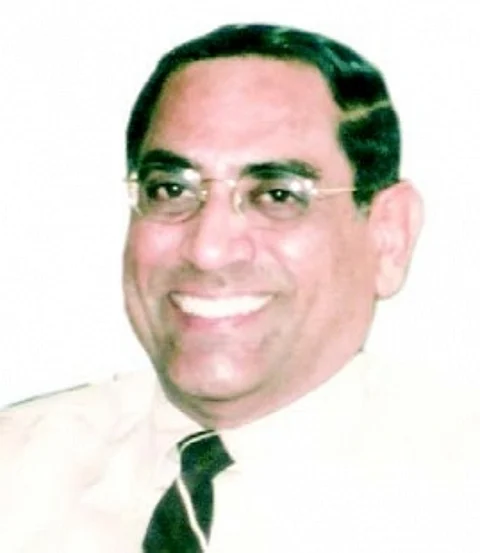Physicians Burnout
The recent spate of incredibly shocking and vile crimes defy comprehension. Children murdered by well-educated, affluent mothers; children abandoned by parents like so much unwanted baggage; young students committing suicide because they cannot cope with the relentless pressures; children exploited by online gaming platforms. The details may vary, but the common denominator appears to be mental health issues. In this respect, it is commendable that the IMA Goa State Branch has made this years’ theme “Be Kind to Your Mind” with tailor-made programs backed with medical support.
But the elephant in the room remains ignored; physician burnout. A review published in Local and Regional Anaesthesia in 2020, estimates that number of doctors experiencing burnout at any given time is fully 10% higher than in the general population with roughly 43% of healthcare professionals showing symptoms. The early warning signs of burnout include exhaustion and diminished efficacy. These may seem like a part of everyday life; but if neglected, can eventually lead to burnout. The review notes that symptoms include emotional exhaustion, depersonalisation, and a sense of low personal accomplishment. Exhausted physicians can appear to stop caring about patients. Cognitive performance and motivation may also decline.
The authors of the review postulated a five-stage model that illustrates the burnout progression. It begins with a period of enthusiasm, known as the “Honeymoon Phase.” The physician may feel an increased commitment to work, adding to stress as the physician gets worn out. Without coping strategies, burnout leads to a sense of stagnation, compounding the stress. Work becomes all-consuming at the cost of social and familial relationships. Physical and emotional symptoms of stress and depression begin to emerge ending in frustration, feelings of failure, incompetence, or inadequacy. An apathy stage follows. The physician’s world becomes clouded with disillusionment and despair; they become distant and resigned, with no resolution in sight. This eventually overwhelms the doctor and leads to habitual burnout.
The key is to identify some of these red flags before being overwhelmed. These include unexplained anxiety or nausea, feelings of dread of joining duties, and decision fatigue. A study published in the Journal of Clinical Psychiatry on burnout among healthcare workers found a number of symptoms that strongly predicted the condition. Fatigue, irritability, anxiety, and feeling “on edge” were most common in physicians who were burned out. At work, burnout causes symptoms like irritability and trouble concentrating; whereas personal relationships in contrast, showed negative expectations and feelings of self-loathing
A study, conducted by the Indian Medical Association (IMA) HQ, found that about 82.7 percent of doctors in India are stressed out in their profession. Fear of violence is the main stressor in many doctors (46.3 %). Even washing your hands after examining a patient invites assault, and doctors being murdered no longer makes front-page headlines. Fear of being sued follows (24.2%) and 13.7% fear criminal prosecution. The medical profession is considered to be one of the most stressful, but mental health issues continue to be a taboo subject in the Indian context. Doctors have a 2.5 times higher suicide risk, than the general population. Though case reports appear in the Indian media, there is hardly any scientific study that has looked into the issue because of difficulties in collecting information. The stigma associated with suicide leads to a papering over of the issue and a lack of centralized information collection.
New entities have emerged. “Imposter syndrome” is the condition of feeling anxious and not experiencing success internally, despite appearing high-performing externally. This condition often results in people feeling like "a fraud" or "a phony" and doubting their abilities. Expert on the subject, Dr. Valerie Young, has categorized it into subgroups: the Perfectionist, the Superwoman/man, the Natural Genius, the Soloist, and the Expert.
According to an AMA article, healthcare tends to create a culture in which physicians are programmed to cope alone, and trainees develop a survival mentality. These along with imposter syndrome, are some of the reasons why physicians skip seeking help. A report written by Yalda Safai, MD, and published by ABC News in 2020, indicates that doctors are reluctant to seek help because of the effects on their professional reputation and the stigma.
Case studies have established a number of coping strategies and intervention methods to combat burnout in physicians. Evidence indicates that practices like mindfulness, stress management, and small-group discussions can help. For example, the BMC Medical Education in 2020 explored the efficacy of an intervention that taught doctors-in-training how to manage work-life balance and trained them in self-care skills.
A cohort of 22 doctors underwent workshops that included advice on physical activity, eating habits, sleep strategies, self-compassion, and mindfulness meditation. They also received training designed to help individuals keep their work and private lives separate. Researchers found that the intervention produced a “statistically significant reduction in burnout” and improvement in boundary control during a 1-month follow-up. Participants reportedly benefited from having a “safe space to discuss stressors.” According to the Local and Regional Anaesthesia review, focusing on relationships can keep burnout at bay. This means spending quality time with family and friends and pursuing connections with colleagues, even practising religion.
In short, doctors are at a high risk of developing mental health problems such as depression, anxiety, stress, and substance abuse; yet reluctant to seek timely and appropriate professional help for their difficulties. Undetected and untreated mental health problems often result in considerable negative, often tragic, consequences to the doctor, the family, and the patients. Any wonder that less than 8% doctors wish their children follow in the profession. The profession must make confidential specialist treatment services accessible for doctors who experience mental health difficulties. “The structure and functions of such a service must be a defined through debate to translate it from strategy to action” (Indian Psychiatric Society). Therapy, like charity, must begin at home.
(The author is a founder member of VHAG and a past President of the IMA Goa State Branch)

